14 Health Benefits of Mint
Did you know mint is more than just a flavor in gum and toothpaste? It’s a plant that comes in different types like spearmint and peppermint, and it’s not just for taste – it has benefits for your health! You can enjoy mint in teas, desserts, and drinks like our Virgin Mojito, which has a natural mint flavor along with mint leaves and juice.
So, does mint make you healthier? Yes! Explore the extensive health benefits of mint as we uncover its numerous advantages for your well-being. Mint can help your brain work better and keep your digestion in check. It’s even better if it’s organic because then you avoid extra chemicals and help the environment.
Try mixing mint with other healthy foods for an extra boost. Imagine sipping on a fruity mojito and getting all these health perks from mint. Sounds good, right?
What Is Mint?
Mint is a plant that makes your mouth feel cool. You can find its flavor in toothpaste, mouthwash, mints, and gum. But it’s not just for freshening breath! Mint adds yummy flavor to foods and drinks, like ice cream, lemonade, and even meat dishes.
There are different types of mint plants, and most of them belong to the genus Mentha. Since mint plants grow fast and spread everywhere, gardeners often keep them in pots. If you plant mint straight into the ground, it can take over your whole garden!
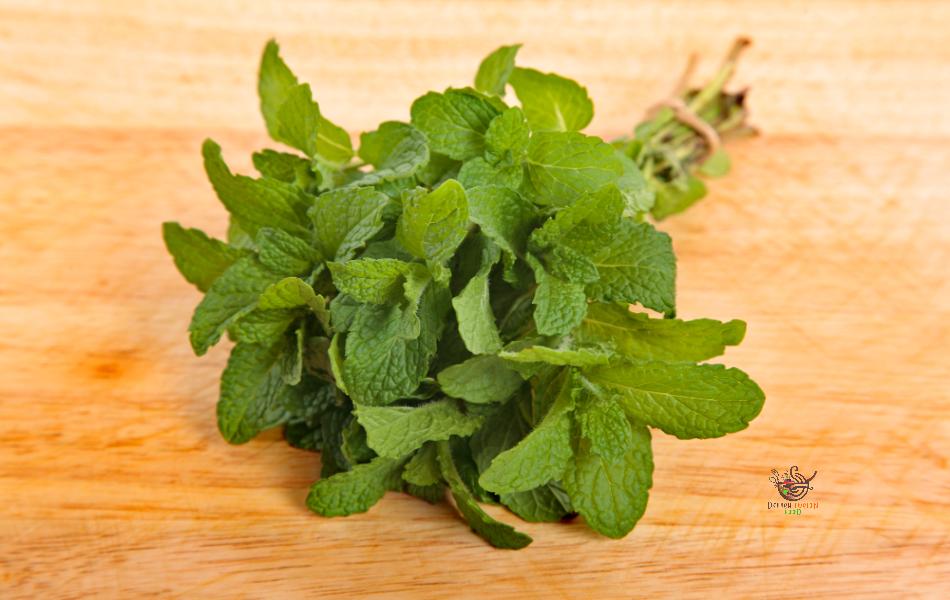
Mint grows naturally on every continent except Antarctica. Peppermint and spearmint are the ones you probably know best, but there are others like wild mint, marsh mint, banana mint, and water mint.
Some plants called “mint” are also part of the monarda group. Both mentha and monarda belong to the same plant family called Lamiaceae. Monarda mints include horsemint, lemon mint, and mountain mint.
14 Health Benefits of Mint
1. Packed with Nutrients
Although people don’t typically consume mint in large quantities, it still contains a fair amount of nutrients. 2 tablespoons or 11.4 grams of spearmint contain a noteworthy array of nutrients.
| Energy | 5 kcal |
| Fiber | 0.775 g |
| Carbohydrates | 0.959 g |
| Calcium | 22.7 mg |
| Magnesium | 7.18 mg |
| Iron | 1.36 mg |
| Phosphorus | 6.84 mg |
| Potassium | 52.2 mg |
| Sodium | 3.42 mg |
| Vitamin C | 1.52 mg |
| Folate | 12 µg |
| Vitamin A | 23.1 µg |
Due to its strong flavor, mint is commonly added to recipes in small quantities, making it challenging to consume even 1/3 cup. But some salad recipes that include mint with other ingredients might bring you close to consuming this amount.
Mint provides a significant amount of vitamin A, essential for maintaining eye health and enhancing night vision. Mint is a potent source of antioxidants, especially compared to other herbs and spices. Antioxidants protect your body from oxidative stress, caused by free radicals, damaging cells.
2. Digestive Benefits of Mint
Mint leaves are great for starting your meal. They help your digestive system by getting the digestive juices flowing. Mint oil’s antiseptic and antibacterial qualities can ease indigestion and stomach infections.
Sometimes, food stays in your stomach too long before moving on in your body, causing indigestion. Studies suggest that peppermint oil with meals can speed up how fast food leaves your stomach, which might help with this kind of indigestion.
3. Helping with Irritable Bowel Syndrome (IBS)
Irritable bowel syndrome (IBS) is a frequent issue with the digestive system. It brings about symptoms such as stomach pain, gas, bloating, and changes in bowel habits. Doctors usually treat IBS by changing what you eat and giving you medicine. However, some studies say using peppermint oil might also help. Peppermint oil has menthol, a compound believed to ease IBS symptoms by relaxing the muscles in the digestive tract.
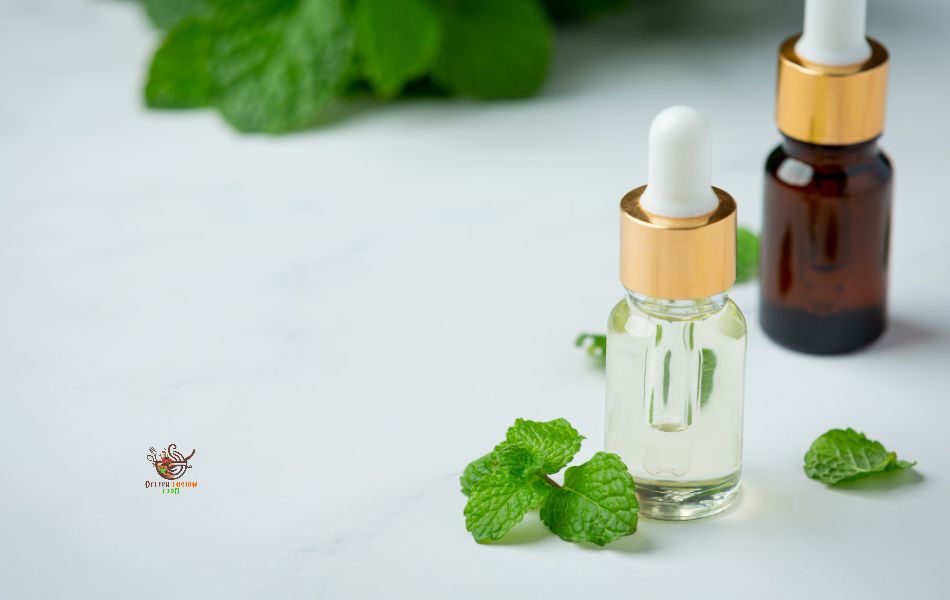
A review of nine studies involving more than 700 patients with IBS discovered that taking peppermint oil capsules improved IBS symptoms compared to taking placebo capsules. Another study found that 75% of people who took peppermint oil for four weeks felt better, while only 38% of those who took placebo capsules.
4. Strengthen Your Immune System
Mint is packed with antioxidants that protect your body from harm caused by free radicals, supporting your immune system. Mint leaves can even help stop the formation of tumors by blocking certain enzymes. Keeping your immune system strong is crucial for staying healthy and avoiding many illnesses.
5. Sharp Your Brain Function
Mint can make your brain work better by making you more alert and improving your memory. It also helps stop you from feeling tired mentally. These mint benefits usually come from breathing in the plant’s essential oils rather than eating it.
6. Supporting Pregnancy and Breastfeeding
Did you know mint can help during pregnancy and breastfeeding? It’s true! Mint can ease breastfeeding pain and prevent skin cracking when applied as an essential oil or peppermint gel. Some moms also chew mint to help with pregnancy nausea and anxiety.
While many people believe in these remedies, it’s wise to consult your doctors before making changes to your diet or trying new medications or supplements, especially during pregnancy or breastfeeding.
7. Relieving Cold Symptoms
A virus causes the common cold, so mint can’t cure it. However, mint can help ease the symptoms and make you feel better. Studies found that mint can make it easier to breathe through your nose and clear your sinuses, which can help when you have a cold. Many cold and flu medicines have menthol from peppermint oil. Some think it clears congestion and helps breathing, but studies show it doesn’t.
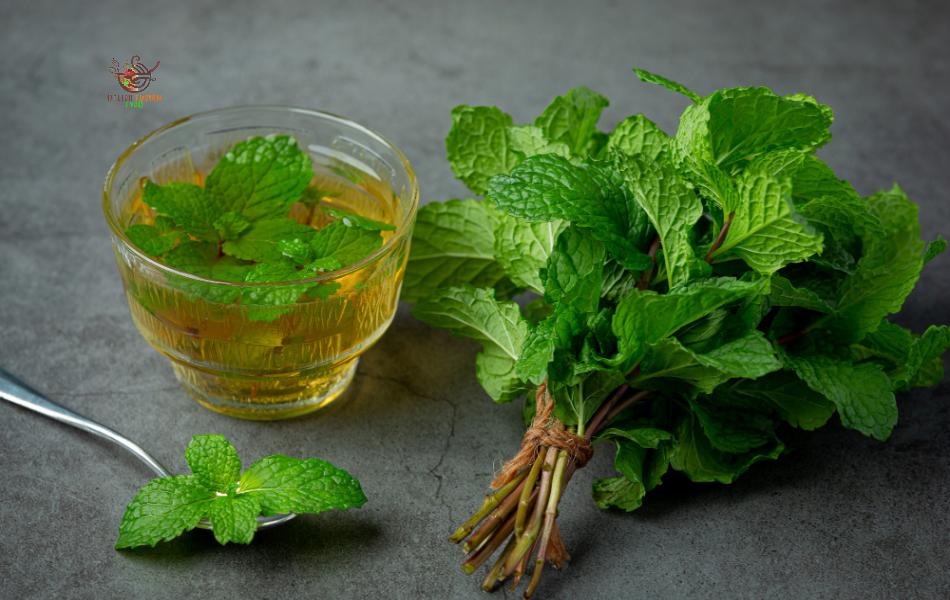
However, research also indicates that menthol might make nasal breathing feel better for individuals, even though it doesn’t function as a decongestant. It can create a sensation of easier breathing through the nose.
8. Keep Your Mouth Fresh
Mint is known to cover up bad breath, so it’s often added to toothpaste, mouthwash, and gum for flavor. But, while these products only hide the smell, chewing real mint leaves or drinking mint tea can kill the smelly bacteria and make your breath fresh. Mint, especially peppermint, has strong antibacterial properties and can help with mouth ulcers.
9. Ease Stress
Studies show that mint can help you feel less frustrated, tired, and anxious. Some research suggests that smelling mint can calm your nerves, so eating peppermint candy or using mint oil in a diffuser might help.
Mint may also lower blood pressure and prevent high blood pressure. You can add mint to your tea, use mint oil in a vaporizer, or take a mint bath for relief from stress and sadness.
10. Ease Allergy Symptoms
Mint can ease the symptoms linked to dust allergies and asthma because it has anti-inflammatory properties. It holds rosmarinic acid, an antioxidant and anti-inflammatory agent, which has effects against allergies.
Recent research in 2019 has shown that mint contains 53 different compounds with properties that can help alleviate allergies. This suggests that consuming mint may help to some degree in treating various types of allergies.
11. Soothe Your Skin
Salicylic acid and Vitamin A are popular in skincare, and mint has been used for ages to treat skin issues like acne and scars. Mint leaves have strong antibacterial, antifungal, and anti-inflammatory properties, making them effective against acne. They can reduce inflammation and redness. Mint also has high salicylic acid and vitamin A, which control oil production and help treat acne. The mint extract helps prevent and treat acne. Menthol and antioxidants in mint leaves make them great for cleansing, toning, and moisturizing the skin. Mint also tones the skin and soothes dry, itchy skin.
12. Healthy Hair
Mint leaf extract is rich in carotene and antioxidants, which promote hair growth and prevent hair loss. Mint leaves also fight dandruff and head lice because they have strong antimicrobial and antifungal properties.
To use mint on your hair, make a paste with mint leaves and lemon juice, apply it to your scalp, leave it on for 30-40 minutes, and then rinse your hair well.
13. Supports Weight Loss
Mint leaves help lose weight healthily. They improve digestion and increase metabolism, aiding in weight loss. Enjoying mint tea is a great way to refresh yourself with a calorie-free drink that can promote weight loss.
14. Ease Morning Sickness
Mint is a great way to ease nausea, including morning sickness. It’s effective for soothing upset stomachs.
Potential Risks of Mint Leaves
Like many herbs, mint can cause problems for some people. If you have gastroesophageal reflux disease (GERD), using mint to ease digestive issues may not be a good idea. A study in 2019 found that mint often triggers symptoms of GERD.
Taking large doses of peppermint oil can be harmful. It’s important to follow the recommended doses. Pure menthol is poisonous and should not be consumed internally. It’s safe to apply it only on the skin or a nearby surface, like a pillow, to release its scent.
Avoid putting mint oil on the face of an infant or small child, as it may cause spasms that make breathing difficult.
Cooking Tips for Mint
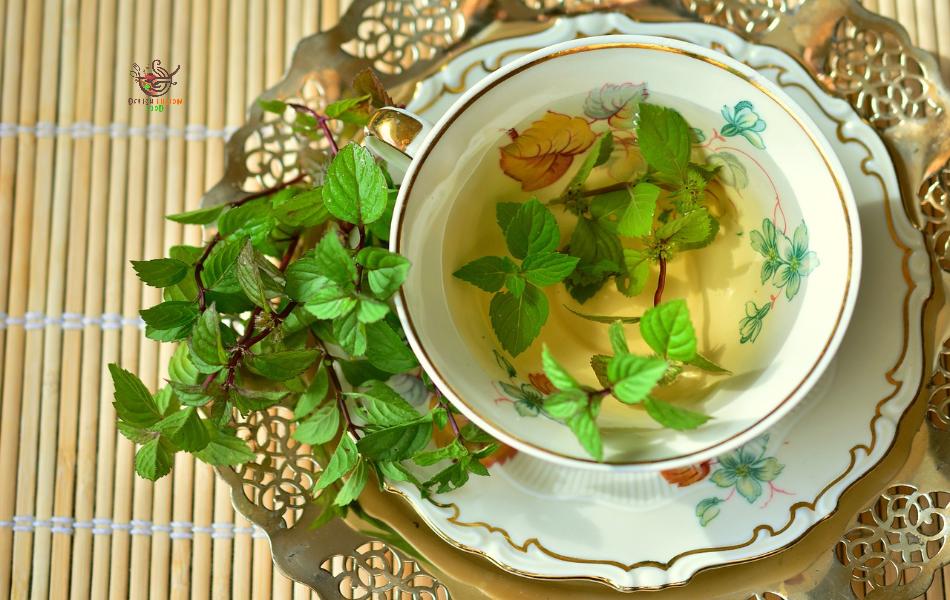
- Use mint leaves raw or towards the end of cooking to keep their delicate flavor.
- Look for fresh, unblemished leaves, and store them in the fridge for up to a week.
- Grow mint at home for a sustainable flavor boost.
- Use a sharp knife to chop mint to avoid losing flavor.
- Add mint to Middle Eastern dishes like lamb, soups, and salads.
- Get creative with mint by making mint limeade, fruit salsa, flavored water, or mint tea.
- Sprinkle chopped mint into cookie dough or toss with fresh pineapple for a tasty snack.
See Also – Top Green Tea Substitutes for a Healthy Lifestyle
Conclusion
Is mint good for you? Definitely! Mint is packed with vitamins and minerals, making it a great choice for a healthy diet. Even if you’re not into minty flavors, there are still ways to enjoy its benefits.
Don’t like peppermint tea or minty sweets? No problem! Treat yourself to a delicious organic Virgin Mojito or add a splash of white rum for a refreshing twist. After all, there are many ways to enjoy the goodness of mint!

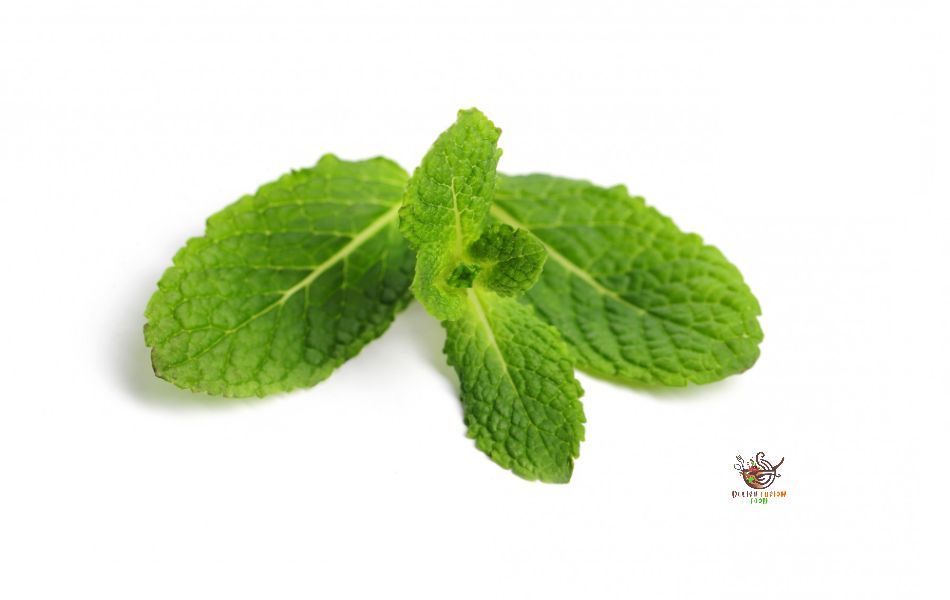
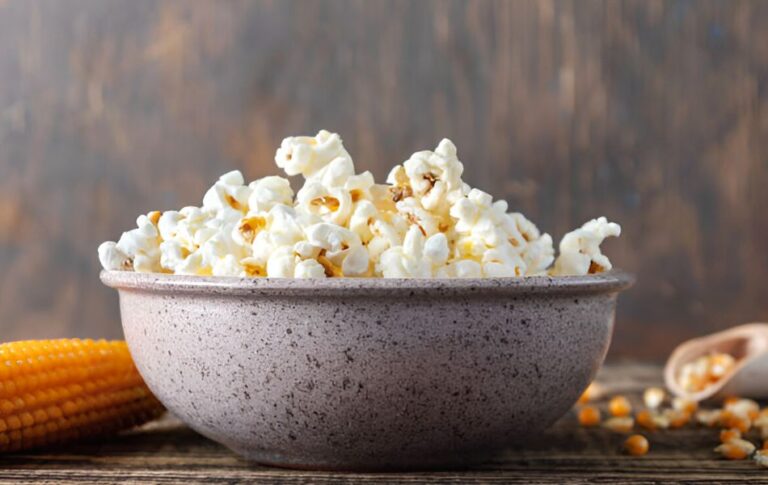
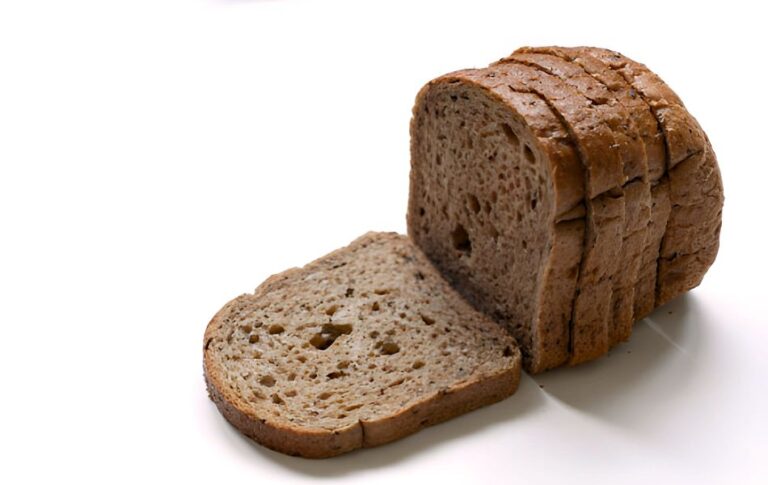




very informative articles or reviews at this time.